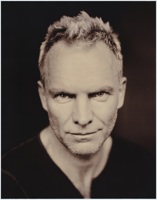U.S. President Barack Obama’s Nobel Peace Prize acceptance speech (Source: Associated Press); Human Rights Day 2009: the Good, the Bad, and the Hopeful (Source: PEN Association); Iran: Election Contested, Repression Compounded (Amnesty International)
In his Nobel Peace Prize acceptance speech in Oslo, Norway, U.S. President Barack Obama highlighted the peaceful struggles of millions of Burmese, Zimbabweans and Iranians while also acknowledging the following in this much-repeated introduction:
“…Compared to some of the giants of history who have received this prize — Schweitzer and King; Marshall and Mandela — my accomplishments are slight. And then there are the men and women around the world who have been jailed and beaten in the pursuit of justice; those who toil in humanitarian organizations to relieve suffering; the unrecognized millions whose quiet acts of courage and compassion inspire even the most hardened of cynics. I cannot argue with those who find these men and women — some known, some obscure to all but those they help — to be far more deserving of this honor than I…
So even as we respect the unique culture and traditions of different countries, America will always be a voice for those aspirations that are universal. We will bear witness to the quiet dignity of reformers like Aung Sang Suu Kyi; to the bravery of Zimbabweans who cast their ballots in the face of beatings; to the hundreds of thousands who have marched silently through the streets of Iran. It is telling that the leaders of these governments fear the aspirations of their own people more than the power of any other nation. And it is the responsibility of all free people and free nations to make clear to these movements that hope and history are on their side.”
Also on December 10th – International Human Rights Day – the PEN Association of thousands of writers posted a report that states:
“Most of us tend to measure a year’s passage by our birthdays, but in the human rights world, each year is marked and measured by December 10: International Human Rights Day, the anniversary of the birth of the Declaration of Human Rights. Each December 10 has meaning, of course, but 2009 is particularly poignant.
We’ve witnessed the murders of more writers, journalists, and human rights defenders than we’d ever want to count this year, including Natalia Estemirova, the courageous Chechen activist who was abducted outside her home in Grozny and murdered on July 15.
We’ve also witnessed the mass arrests of writers and scholars in places like Iran, which responded to popular protests over this year’s election results by handing out outrageous sentences to people like Kian Tajbakhsh, who is now serving 15 years in jail.
And we’ve witnessed countries blatantly defying their own laws, such as in China’s arrest and detention of our own PEN colleague, Liu Xiaobo, who is now spending his second Human Rights Day in silence…
And so here at PEN in New York, we are commemorating Human Rights Day by paying tribute to all these brave men and women, in China and all over the world, who are using their pens, using their voices, to stand up for human rights, regardless of the consequences. We stand with them, we stand behind them, and we will continue to fight for them until all our pens, our voices, are free…”
Meanwhile, Amnesty International‘s newly issued report on Iran: Elections Contested, Repression Compounded features Kian’s case:
“…[Kian Tajbakhsh] appears to have been particularly harshly treated on account of his dual nationality and the nature of his academic work.”
 Sting makes appeal for Kian Tajbakhsh and Iranian detainees.
Sting makes appeal for Kian Tajbakhsh and Iranian detainees.